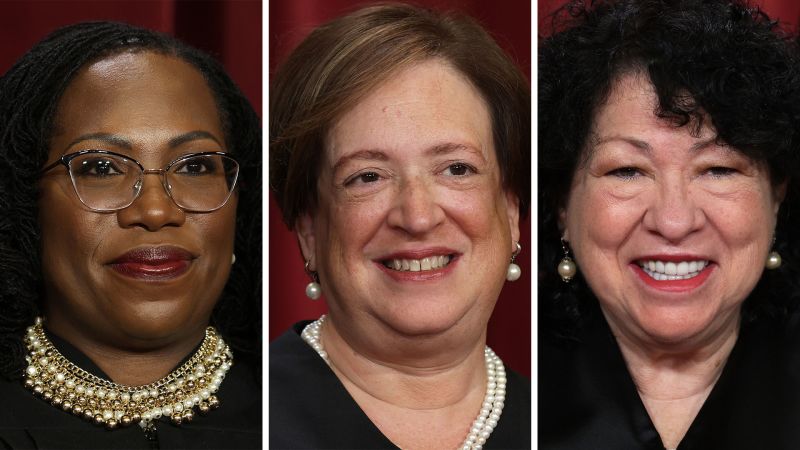In a recent string of conservative victories in the Supreme Court, liberal justices Sonia Sotomayor, Elena Kagan, and Ketanji Brown Jackson made their voices heard through dissenting statements read aloud in the courtroom. As the conservative majority prevailed in several cases, the dissenting justices took the opportunity to express their opposition and draw public attention to their views. Justice Neil Gorsuch’s announcement of a 6-3 decision allowing an Oregon city to ticket homeless individuals for sleeping outside prompted a passionate response from Sotomayor. She emphasized that sleep is a biological necessity, not a crime, and criticized the city for punishing homeless individuals for their status.
Chief Justice John Roberts’ announcement of a decision that limited federal regulators’ power and increased judges’ authority received a strong dissent from Kagan, who denounced the majority’s decision as a significant blow to essential federal regulations. The court’s reversal of a 1984 milestone case sparked concerns among liberals as it marked the third time in three years that conservatives had overturned longstanding precedent.
In another dissent, Justice Sotomayor protested a decision that curtailed the power of the Securities and Exchange Commission to enforce fraud regulations. Her assertiveness in the courtroom highlighted the challenges faced by agencies in upholding regulatory standards in the face of legal limitations.
The court’s newest justice, Ketanji Brown Jackson, also raised her voice in dissent regarding an Idaho abortion dispute. She criticized the majority for failing to resolve a conflict over reproductive care and instead opting for a temporary compromise. The controversial Idaho abortion ban, which only allowed exceptions in cases where the pregnant woman’s life was at risk, raised questions about access to emergency reproductive care for women facing serious complications.
Despite the conservative majority’s control over recent decisions, liberal justices have made it clear that they will continue to advocate for constitutional rights and protections for marginalized individuals. The dissenting statements delivered in the courtroom underscore the ongoing ideological divisions within the court and the importance of upholding legal principles in the face of judicial challenges.











